#Grand Opéra
Text

L’escalier de l’Opéra in 1877 by Louis Béroud
3 notes
·
View notes
Photo
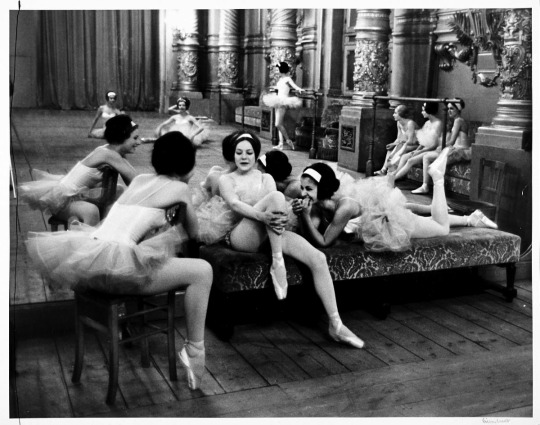
Alfred Eisenstaedt. Resting period of the Corps de Ballet at the Grand Opéra de Paris. 1930
I Am Collective Memories • Follow me, — says Visual Ratatosk
#BW#Black and White#Preto e Branco#Noir et Blanc#黒と白#Schwarzweiß#retro#vintage#Alfred Eisenstaedt#Corps de Ballet#Grand Opéra de Paris#1930#1930s#30s
196 notes
·
View notes
Text
less than 30 minutes!!!
14 notes
·
View notes
Text
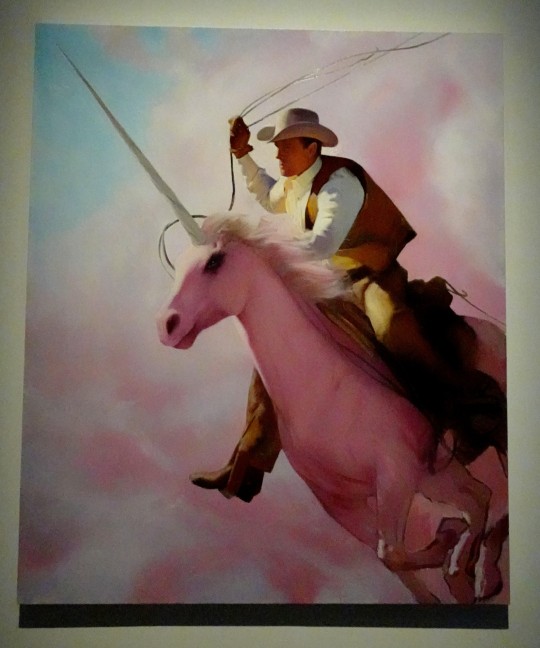
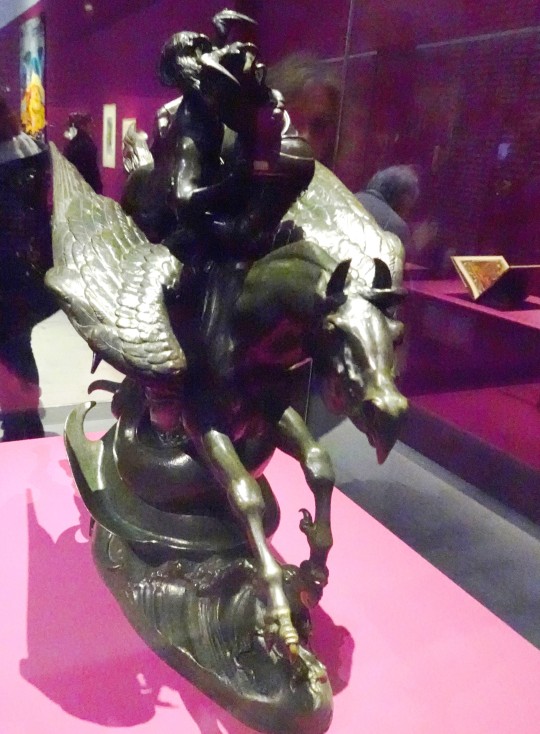
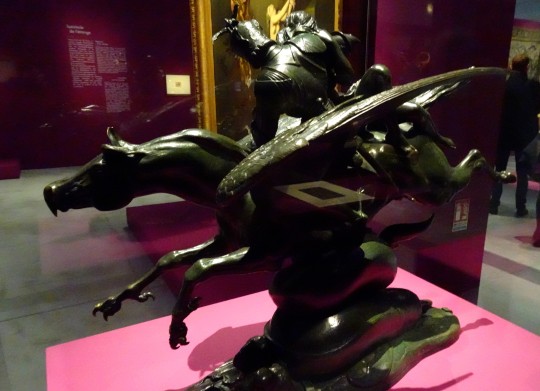
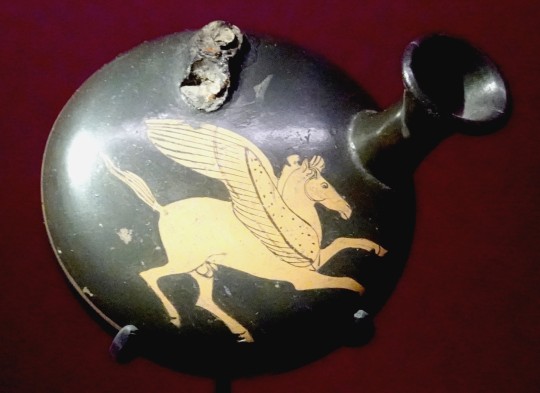
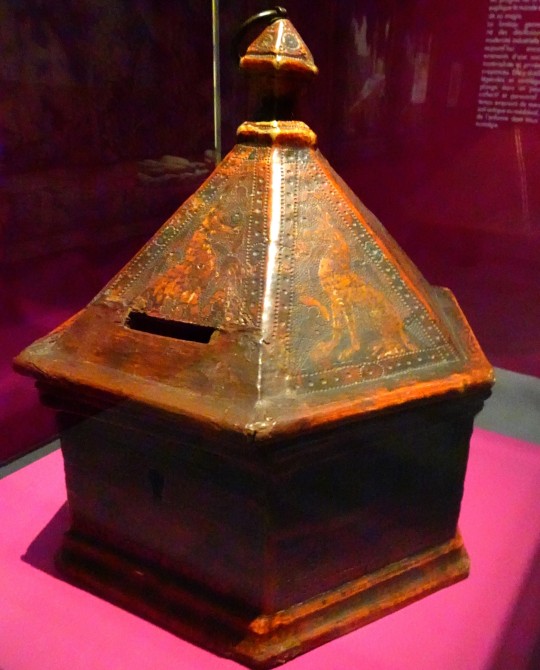
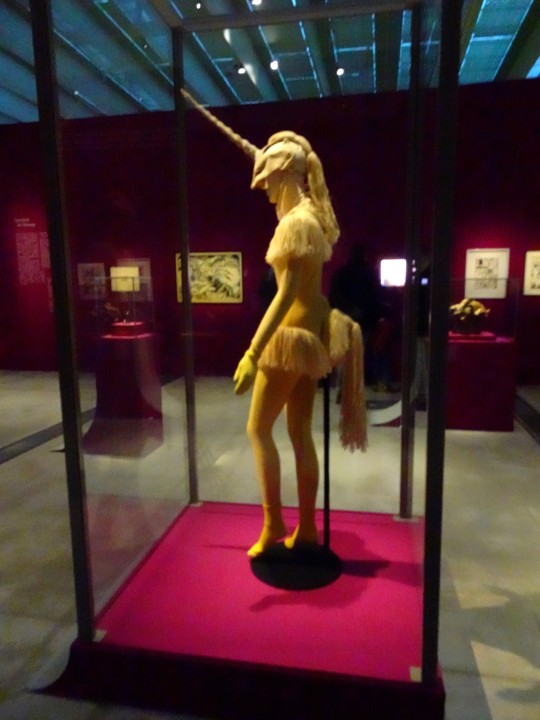
Il y a une petite quinzaine, je suis allé avec Julien et Katie, au Louvre-Lens pour une expo temporaire : “Animaux Fantastiques”. Une très belle expo ! Ici des licornes, un pégase et un hippogriffe :
Will Cotton - "Roping"
les 2 suivantes : Antoine-Louis Barye - "Angélique et Roger montés sur l'Hippogriffe"
vase, Pégase en vol - Italie du Sud, 430 av. J-C.
coffret hexagonal en cèdre, avec licornes - Europe du Sud, 1450
atelier de couture de l'Opéra de Paris pour Jean Cocteau - "la Dame à la Licorne- une petite licorne"
#expo#louvre-lens#animaux fantastiques#monstre#créature#licorne#hippogriffe#pégase#archéologie#will cotton#antoine-louis barye#barye#angélique et roger#grande grèce#grèce antique#médiéval#opéra de paris#jean cocteau#cocteau
5 notes
·
View notes
Text

On May 2. 1864 died in Paris Giacomo Meyerbeer (1791-1864). He composed 18 Operas.
#Giacomo Meyerbeer#Meyerbeer#opera#classical music#music history#bel canto#composer#classical composer#aria#classical studies#classical musician#musician#maestro#chest voice#Robert le diable#Paris Opéra#Theatre#grand opera#L'Africaine#Music#the golden age of grand opera#metropolitan opera#MET#Les Huguenots#Opéra-Comique#Covent Garden#La Scala
8 notes
·
View notes
Text
imagine dire que des billets d'opéra à 55$ c'est cher alors que tu veux acheter une console à 500$ dont j'ai absolument rien à crisser pour "notre" cadeau de noël 🙄
#TÉKÂH.#fak si ya qq1 qui veut aller voir lucie de lammermoor au grand théâtre fais-moi signe ?#je serais 100% moins frue si y m'avait juste dit qie ça y tente pas d'aller voir un opéra genre
2 notes
·
View notes
Text

Christine Nilsson as Ophélie
#Christina Nilsson#Christine Nilsson#Ophélie#Hamlet#Paris Opéra#Ambroise Thomas#Grand opera#swedish nightingale#bel canto#19th century#dramatic coloratura soprano#The Swedish Nightingale#Opera
15 notes
·
View notes
Text

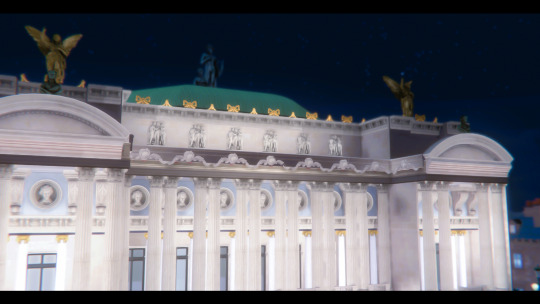

Oliver: The Polytechnique ball thinks big!
Napoléon V: I suggested the Garnier Opera to the school president. You've got to have a bit of fun!
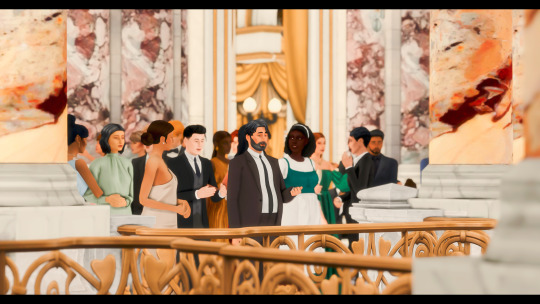

Oliver: How did your honeymoon go?
Napoléon V: Very well, thank you. It was strange to be cut off from the world, away from all the hustle and bustle of Paris.
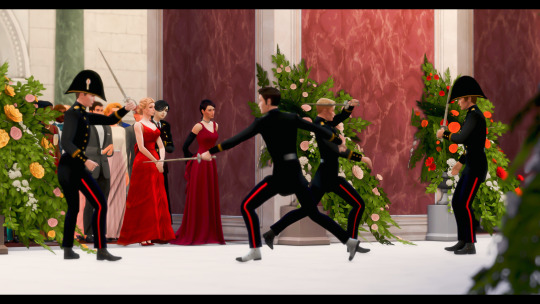
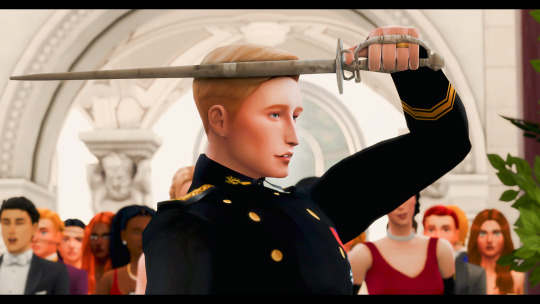
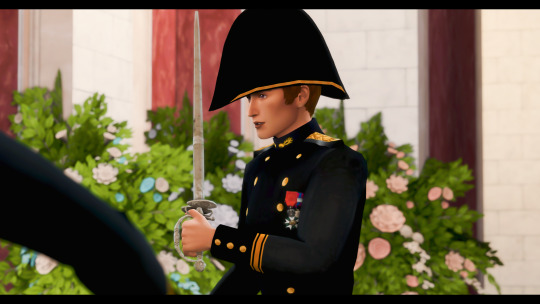
Oliver: Good! You needed a rest. By the way, I thought it would please Hortense to have an estate in Francesim, so that we could visit you from time to time.
Napoléon V: That's a good idea, I like knowing that my twin sister won't be too far away from us.

Oliver: Of course, don't worry, I'll look after her… That is, if you agree, officially
Napoléon V: Officially, so that's it?
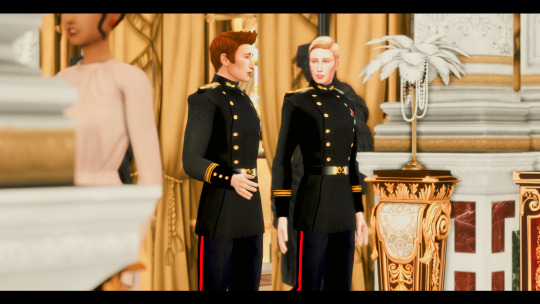
Oliver: Yes, I've been ready for several months now. I'm sorry again for all the trouble I've caused you, it wasn't…
Napoléon V: Let's not talk about it any more. It's all settled. I know that Hortense will be happy with you, surely … more than with me.
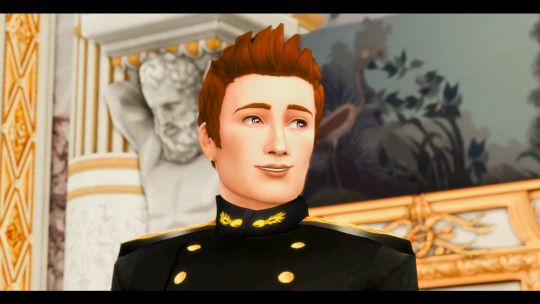
Oliver: You were born to take different paths. At this time in your lives, the distance is natural. However, I believe I can echo Hortense's sentiments that she loves you dearly, no matter what and despite everything that has happened.
Napoléon V: Thank you, Oliver. I'm counting on you to look after her.
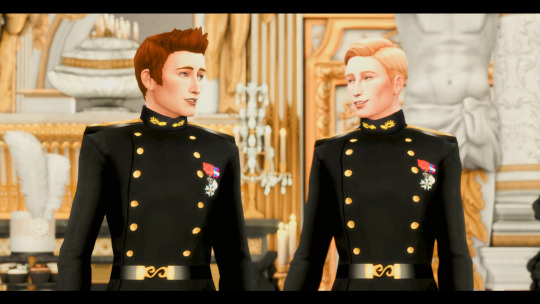
⚜ Le Cabinet Noir | Paris, 17 Messidor An 230
Beginning ▬ Previous ▬ Next
Napoléon V and his entourage went to the Grand Bal de l'X, organised by the École Polytechnique to celebrate the end of their year of study. The ball took place at the Opéra Garnier, and featured a number of performances including dances, fencing, a choir and many other distinguished ceremonies. It's a not-to-be-missed event for young students. During the evening, Oliver approached his friend Napoléon V to officially ask for his sister Hortense's hand in marriage. The Emperor agreed to make the engagement official.
(Thanks to @theroyalthornoliachronicles and @funkyllama for the sims deco and accessories! Oliver is a character belonging to @officalroyalsofpierreland)
⚜ Traduction française
Napoléon V et ses proches se rendent au grand bal de l'X, organisé par l'école Polytechnique pour fêter la fin d'année d'étude. Le bal se déroule à l'opéra Garnier, et donne lieu à de nombreux spectacles comme des danses, des combats d'escrimes, une chorale, et bien d'autres cérémonies distinguées. C'est le rendez-vous immanquable des jeunes étudiants. Durant la soirée, Oliver approche son ami Napoléon V pour lui demander officiellement la main d'Hortense, sa soeur. L'Empereur accepte d'officialiser les fiançailles.
Oliver : Le bal de Polytechnique voit les choses en grand !
Napoléon V : J’ai proposé l’opéra Garnier au président de l’école. Il faut bien s’amuser un peu !
Oliver : Et ta lune de miel alors, ça s’est bien passé ?
Napoléon V : Très bien, merci. C’était étrange d’être coupés du monde, loin de toute l’agitation parisienne.
Oliver : Tant mieux! Tu avais besoin de repos. À propos, j’ai pensé que cela ferait plaisir à Hortense d’avoir un domaine en Francesim, pour que l’on puisse vous rendre visite de temps en temps.
Napoléon V : C’est une bonne idée, j’aime savoir que ma jumelle ne sera pas trop éloignée de nous.
Oliver : Bien sûr, ne t’en fais pas, je prendrai soin d’elle… Enfin, si tu y consens, officiellement
Napoléon V : Officiellement, alors ça y est ?
Oliver : Oui, cela fait plusieurs mois que je suis prêt. Encore désolé pour tous les ennuis que j’ai pu t’attirer, ce n’était pas…
Napoléon V : N’en parlons plus. C’est réglé. Je sais que Hortense sera heureuse avec toi, sûrement … plus qu’avec moi
Oliver : Vous êtes nés pour prendre des chemins différents. À ce moment de votre vie, la distance est naturelle, mais je crois pouvoir me faire l'écho des sentiments d'Hortense qui t'aime tendrement, quoi qu'il arrive et en dépit de tout ce qui s'est passé.
Napoléon V : Merci Oliver. Je compte sur toi, pour veiller sur elle.
#simparte#ts4#ts4 royal#royal simblr#sims 4 royal#sim : louis#sims 4 fr#sims 4#ts4 royalty#sim : oliver#opéra garnier#le cabinet noir#polytechnique#bal#sims 4 royal story#sims 4 royal family#sims 4 royal simblr#sims 4 royalty#ts4 royals#ts4 royal family#ts4 royal simblr
70 notes
·
View notes
Text
Roméo et Juliette
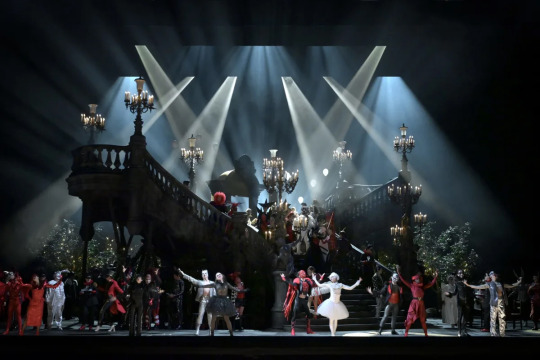
The Opéra de la Bastille in Paris (the Garnier's sister venue) is currently putting on a production of Gounod's opera "Roméo et Juliette" that has some serious Phantom vibes going on!
"Roméo et Juliette" is one of the major operas that are referenced in Gaston Leroux's novel. It is cited in two scenes: In Chapter 2 "The New Marguerite", Christine sings some pieces from the opera, including the final death scene ("Seigneur! Seigneur! Pardonnez-nous!", which are the last words of the opera). But the most memorable scene is probably when in Chapter 10, Erik comes for Christine singing the wedding-night song, "Nuit d'hyménée", from which the line "La destinée t'enchaîne a moi sans retour" (originally "m'enchaîne a toi") is quoted three times as Christine follows Erik through the mirror and leaves a baffled Raoul behind in her dressing-room.
For the staging in this new production, the grand staircase of the Palais Garnier has been recreated and serves as the central setpiece for the entire action. The opera also opens with a masked-ball scene, and even the costumes are reminiscent of the "white, black, red" colour scheme of the masked ball scene in Leroux.

Other design elements of the Palais Garnier - even the balcony scene takes place on a balcony that looks just like the ones in the Garnier's entrance hall!

I am super happy to see one of the "Leroux operas" being staged in such a Phantom-y fashion! Too bad I will not be able to see it :((...
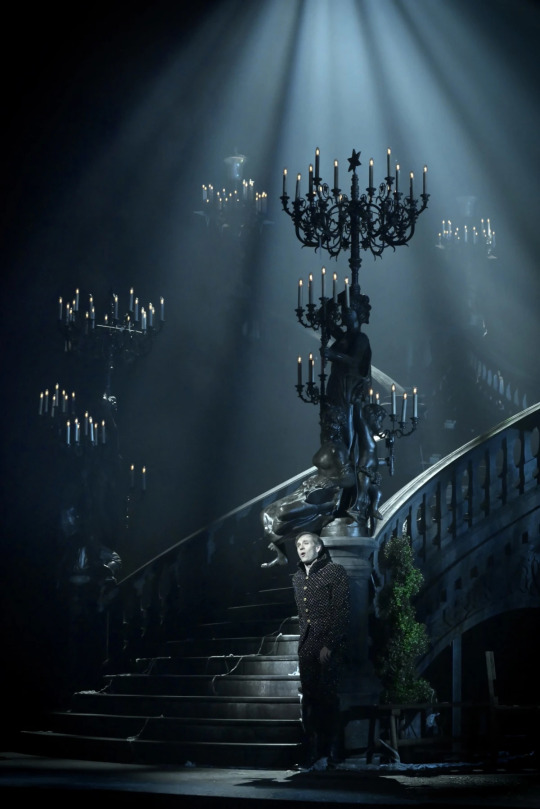
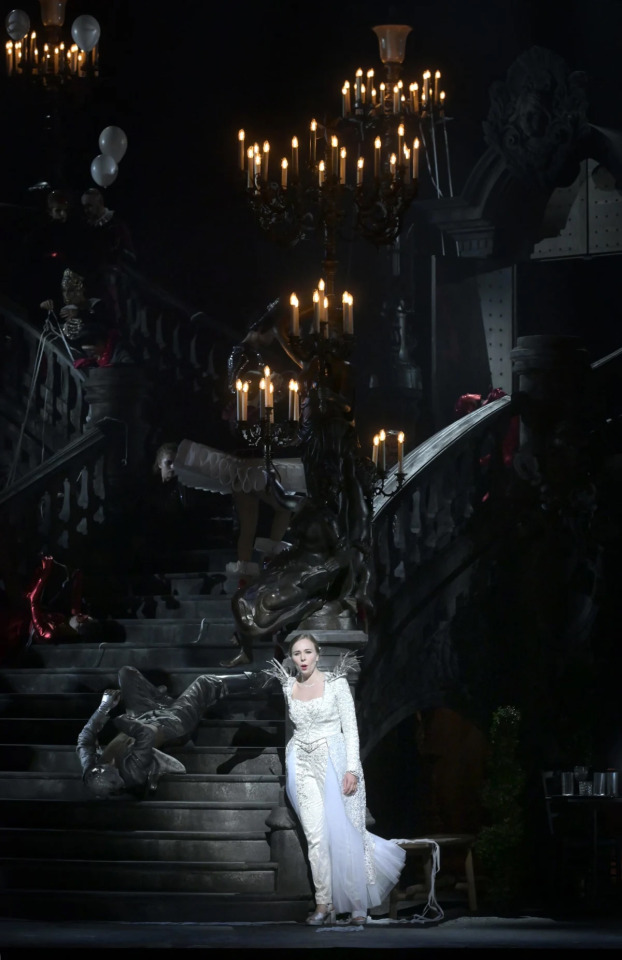
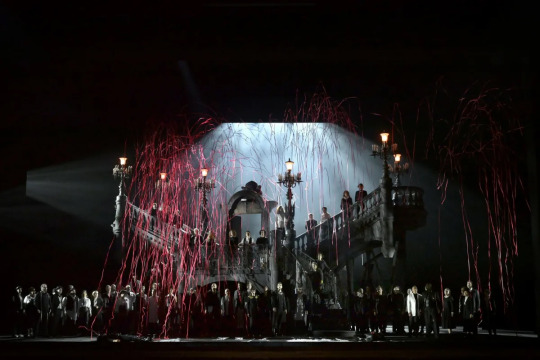
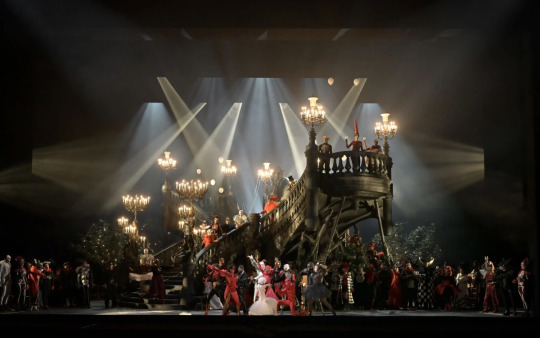
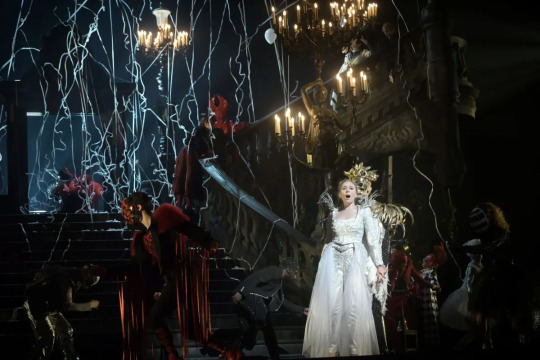

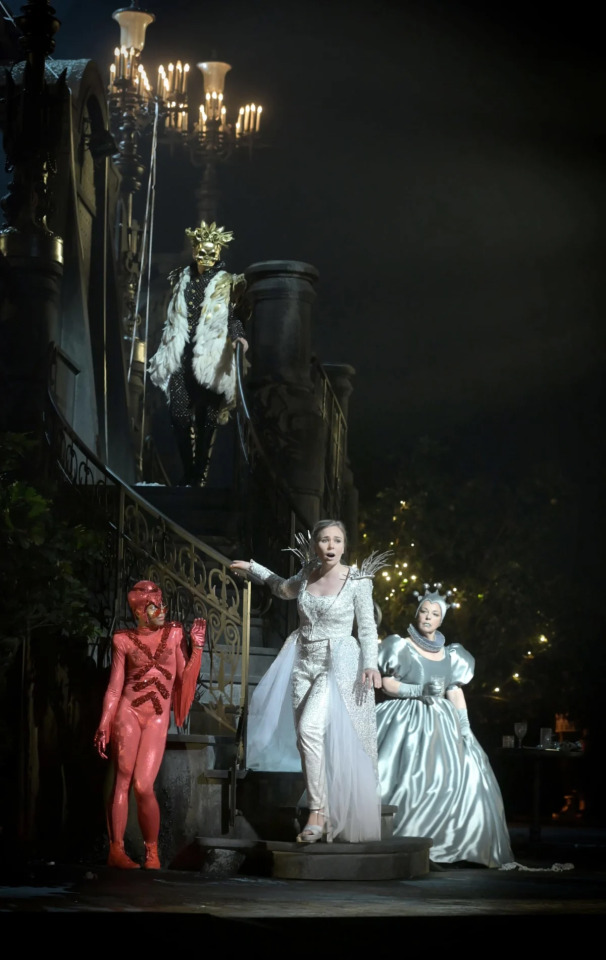
#phantom of the opera#leroux phantom#le fantôme de l'opéra#opera garnier#paris opera#erik x christine#romeo et juliette#phantom operas#charles gounod
192 notes
·
View notes
Text
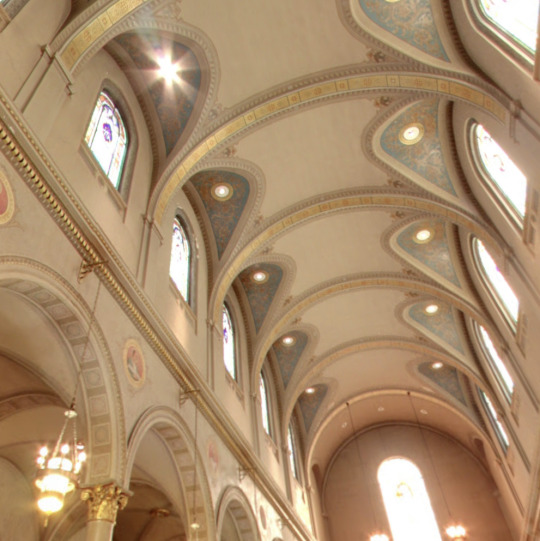

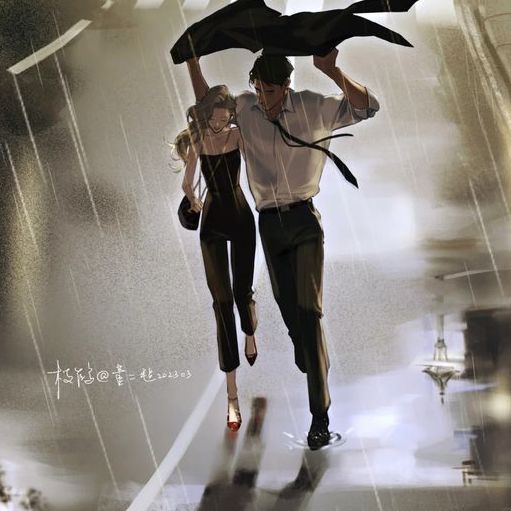


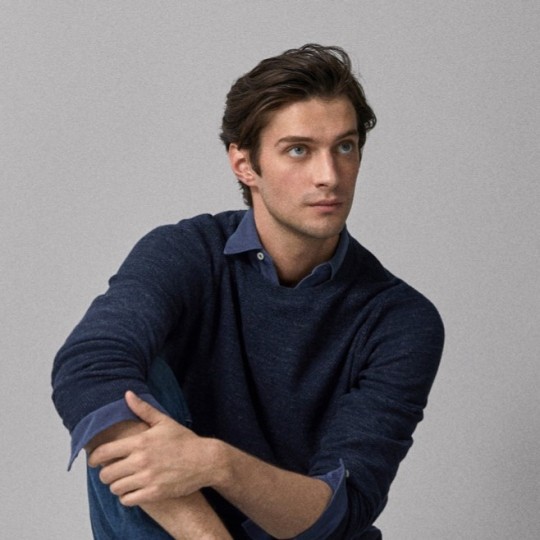
allégro details.
01. Walk through the beautiful church Brooklyn Heights Ballet resides in, here; Eva's apartment street here (turn the right on Myrtle Avenue and you will stumble across Kingston Bakery).
02. My everlasting quest for Mako to look like the most stereotypical manhwa character continues. I have made *slight* progress. TS3's inability to create long, slanted eyes keep fucking me up.
03. A sweet illustration I found that inspired the rain scene. There's literally no other reason for the rain, I just wanted to recreate this one visual with Evako.
04. Bow Bridge in Central Park is a famous spot for lovers, often glimpsed in romantic movies. The 1862 cast iron bridge resembles the bow of an archer, or violinist.
05. Kogarashi is a poetic Japanese word: the first cold wind that signals the coming of winter. It is the name of the Hayashi's luxury hotel empire, which is inspired by Aman Resorts.
06. Zachari Rousseau is a 27 year old principal dancer at Brooklyn Heights Ballet. Trained at the Paris Opéra Ballet School, he is a winning alumnus of the Grand Prix, and quickly ascended the ranks of Brooklyn Heights. Once coveted for his ethereal youth, Rousseau remains popular amongst the ballet's wealthy donors, despite his slowly fading beauty.
#a collection of chapter 16 details that eva doesn't know#enjoy my rabbit-holing#half of my chapter prep is just vibing on google street view#genfour#enpointe#nonsims
34 notes
·
View notes
Text
The Top 40 Most Popular Operas, Part 3 (#21 through #30)
A quick guide for newcomers to the genre, with links to online video recordings of complete performances, with English subtitles whenever possible.
Verdi's Il Trovatore
The second of Verdi's three great "middle period" tragedies (the other two being Rigoletto and La Traviata): a grand melodrama filled with famous melodies.
Studio film, 1957 (Mario del Monaco, Leyla Gencer, Ettore Bastianini, Fedora Barbieri; conducted by Fernando Previtali) (no subtitles; read the libretto in English translation here)
Donizetti's Lucia di Lammermoor
The most famous tragic opera in the bel canto style, based on Sir Walter Scott's novel The Bride of Lammermoor, and featuring opera's most famous "mad scene."
Studio film, 1971 (Anna Moffo, Lajos Kozma, Giulio Fioravanti, Paolo Washington; conducted by Carlo Felice Cillario)
Leoncavallo's Pagliacci
The most famous example of verismo opera: brutal Italian realism from the turn of the 20th century. Jealousy, adultery, and violence among a troupe of traveling clowns.
Feature film, 1983 (Plácido Domingo, Teresa Stratas, Juan Pons, Alberto Rinaldi; conducted by Georges Prêtre)
Part I, Part II, Part III, Part IV, Part V, Part VI
Mozart's Die Entführung aus dem Serail (The Abduction from the Seraglio)
Mozart's comic Singspiel (German opera with spoken dialogue) set amid a Turkish harem. What it lacks in political correctness it makes up for in outstanding music.
Royal Opera House, Covent Garden, 1988 (Deon van der Walt, Inga Nielsen, Lillian Watson, Lars Magnusson, Kurt Moll, Oliver Tobias; conducted by Georg Solti) (click CC for subtitles)
Verdi's Un Ballo in Maschera
A Verdi tragedy of forbidden love and political intrigue, inspired by the assassination of King Gustav III of Sweden.
Leipzig Opera House, 2006 (Massimiliano Pisapia, Chiara Taigi, Franco Vassallo, Annamaria Chiuri, Eun Yee You; conducted by Riccardo Chailly) (click CC for subtitles)
Part I, Part II
Offenbach's Les Contes d'Hoffmann (The Tales of Hoffmann)
A half-comic, half-tragic fantasy opera based on the writings of E.T.A. Hoffmann, in which the author becomes the protagonist of his own stories of ill-fated love.
Opéra de Monte-Carlo, 2018 (Juan Diego Flórez, Olga Peretyatko, Nicolas Courjal, Sophie Marilley; conducted by Jacques Lacombe) (click CC and choose English in "Auto-translate" under "Settings" for subtitles)
Wagner's Der Fliegende Holländer (The Flying Dutchman)
An early and particularly accessible work of Wagner, based on the legend of a phantom ship doomed to sail the seas until its captain finds a faithful bride.
Savolinna Opera, 1989 (Franz Grundheber, Hildegard Behrens, Ramiro Sirkiä, Matti Salminen; conducted by Leif Segerstam) (click CC for subtitles)
Mascagni's Cavalleria Rusticana
A one-act drama of adultery and scorned love among Sicilian peasants, second only to Pagliacci (with which it's often paired in a double bill) as the most famous verismo opera.
St. Petersburg Opera, 2012 (Fyodor Ataskevich, Iréne Theorin, Nikolay Kopylov, Ekaterina Egorova, Nina Romanova; conducted by Mikhail Tatarnikov)
Verdi's Falstaff
Verdi's final opera, a "mighty burst of laughter" based on Shakespeare's comedy The Merry Wives of Windsor.
Studio film, 1979 (Gabriel Bacquier, Karan Armstrong, Richard Stilwell, Marta Szirmay, Jutta Renate Ihloff, Max René Cosotti; conducted by Georg Solti) (click CC for subtitles)
Verdi's Otello (Othello)
Verdi's second-to-last great Shakespearean opera, based on the tragedy of the Moor of Venice.
Teatro alla Scala, 2001 (Plácido Domingo, Leo Nucci, Barbara Frittoli; conducted by Riccardo Muti)
#opera#top 40#21 through 30#video#complete performances#english subtitles#il trovatore#lucia di lammermoor#pagliacci#die entfuhrung aus dem serail#the abduction from the seraglio#un ballo in maschera#les contes d'hoffmann#the tales of hoffmann#der fliegende holländer#the flying dutchman#cavalleria rusticana#falstaff#otello
23 notes
·
View notes
Text
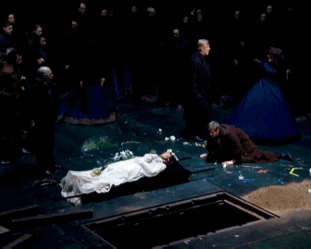

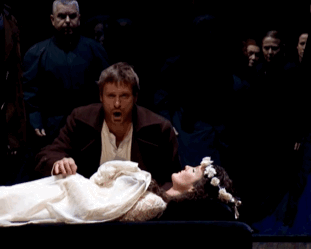
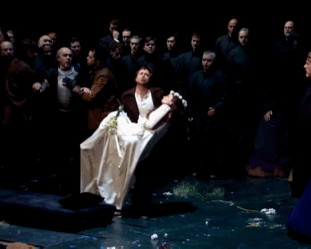
THOMAS: Hamlet | Act 5: Ophélie!
Metropolitan Opera, 2010
Marlis PETERSEN as Ophélie
Simon KEENLYSIDE as Hamlet
OPERA IN HISTORY - March 9
On this day in 1868, Thomas’ grand opera, based on a french adaptation of William Shakespeare’s eponymous play, premiered at the Paris Opéra.
#sorry!!!#Thomas#Opera#Hamlet#Simon Keenlyside#Marlis Petersen#muchadogifs#opera gifs#metropolitan opera#on this day
13 notes
·
View notes
Photo

“Grace Kelly was great however I think people overstate her role in Monaco quite a bit. All what makes Monaco famous: the casino, the marina full with yachts, the Grand Prix (Formula One), the Opéra, the grand hotels, the Bal de la Croix-Rouge, the Circus, the exile for Russian aristocracy, the famous Ballets Russes by Sergey Diaghilev, the posh shops at the Place du Casino and the Avenue de Monaco, the world-famous Oceanographic Institute in Monte-Carlo: all and everything was waaaaay there before Grace Kelly ever came in the picture. Even the Bal de la Rose (of which the revenues go to the Princess Grace Foundation) was established before Grace came on the scene. What Grace did was the normal work that a Princess or royal lady is expected to do. It is part of the traditional royal role particularly for female royals, to promote charities. She had connections in the US and glamour because of her looks and film career, but I would not say that she stood out more than other royal ladies. What her "legacy" is, apart from her three children and wedding dress is hard to substantiate. She for sure was drop dead glamorous, but so were her contemporaries in those years with fabulous couture and very feminine mode.” - Submitted by Anonymous
30 notes
·
View notes
Text
youtube
also, happy five-year (holy shit it’s been FIVE years already???) anniversary of the day i started watching this opera for the first time, which helped shape me to be the person i am now, made my life a lot better, and made me infinitely more obnoxious on the internet
#opera tag#opera#les huguenots#meyerbeer#giacomo meyerbeer#french grand opéra#remember this day like it was yesterday#Youtube
9 notes
·
View notes
Text
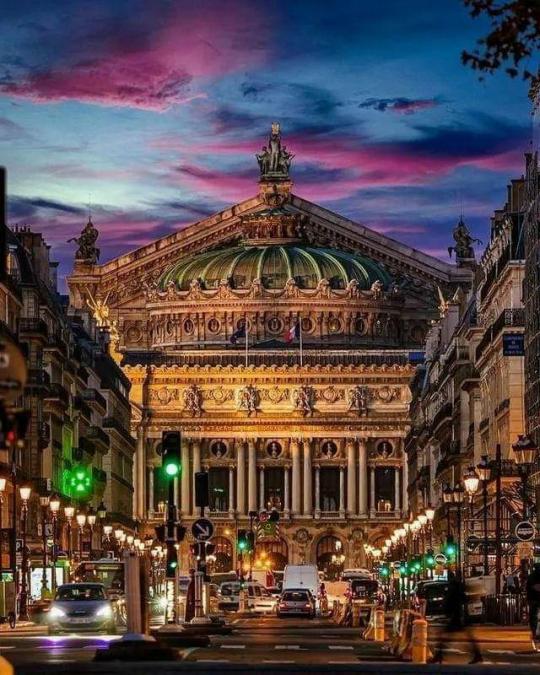
Opéra Garnier: A masterpiece of opulence and elegance in the heart of Paris! 🎭✨ Immerse yourself in the splendor of this architectural gem, adorned with intricate sculptures, gilded accents, and a majestic chandelier. From its grand staircase to its ornate auditorium, every detail tells a story of artistic excellence and timeless beauty. Experience the magic of the opera at Opéra Garnier, where history, culture, and romance intertwine to create an unforgettable spectacle.
4 notes
·
View notes
Text
Character Assaination of Giacomo Meyerbeer
source
Leipzig-born Richard Wagner (22 May 1813 – 13 February 1883) knew little to no success while Giacomo Meyerbeer (5 September 1791- 2 May 1864) was the master of the grand opera. His Robert le diable (Robert the Devil) premiered in 1831 in Paris to set the standard for the genre. A few years later Meyerbeer reached his top when Les Huguenots became the first opera to see over a thousand reprises at the Paris Opéra. While in his glory days, Meyerbeer was approached by a young, impoverished composer seeking his advice: Richard Wagner.
Wagner had finished his opera Rienzi, der letzte der Tribunen (Rienzi, the last Tribune) but the Paris opera showed no interest. He attributed his lack of success to the major newspapers and theaters of his day being controlled by Jews. Nevertheless, the Jewish Meyerbeer decided to help his younger colleague – and to great effect. In 1842 Wagner’s Rienzi premiered in Dresden, where he was appointed as Kapellmeister (conductor). A year later followed Der fliegende Holländer (the flying Dutchman).
In the following decade Wagner’s views drastically developed to become rabidly antisemitic. Wagner turned on Meyerbeer. In the book Opera und Drama (Opera and Drama, 1868) he denigrated his colleague’s talents as a composer, qualifying his music as “effects without cause.” Whereas the book denigrates Meyerbeer’s qualities as composer with the infamous “effects without cause” qualification, the lampoon Judaism in Music focused on the composer’s Jewishness. Here one finds the character assassination.
The attack on Meyerbeer comes in chapter vi. Wagner leaves little doubt about his intentions: jealousy of Meyerbeer’s success. Contrary to Mendelssohn, who is gifted despite his Jewishness, Meyerbeer is ostentatiously not mentioned by name. He is referred to as a “celebrated Jewish music-setter” who exploits a bored audience without any taste. “The seats at these places of amusement are generally occupied by that portion of our middle-class society with whom ennui is the only reason for preferring one occupation to another.”
Meyerbeer’s success proved his mastery of cultivating the deceit of boredom, Wagner alleged. He was the “deceiver amongst composers,” who utilized the effects of catastrophes and emotional situations to the fullest, perfectly aware that only these features would satisfy the bored. Therefore, his operas could be played all over the world. “Oh, how he would like to produce works of art, but he cannot!” Wagner mocked his anonymous target. “In his emotional kitsch and laughable themes, we recognize the Judaism of this renowned composer.” In short, Meyerbeer was not only criticized for his supposed lack of musical talent but was also portrayed as a “typically Jewish” deceiver exploiting his audience.
Wagner initially received little recognition. He attributed this to the media and theaters of his day being controlled by Jews. The little acknowledgement of his work greatly surprised Wagner given the general European context of what he thought to be the “popular dislike of the Jewish character.” Therefore, the art world must be incapacitated and the audience outright stupid.
4 notes
·
View notes